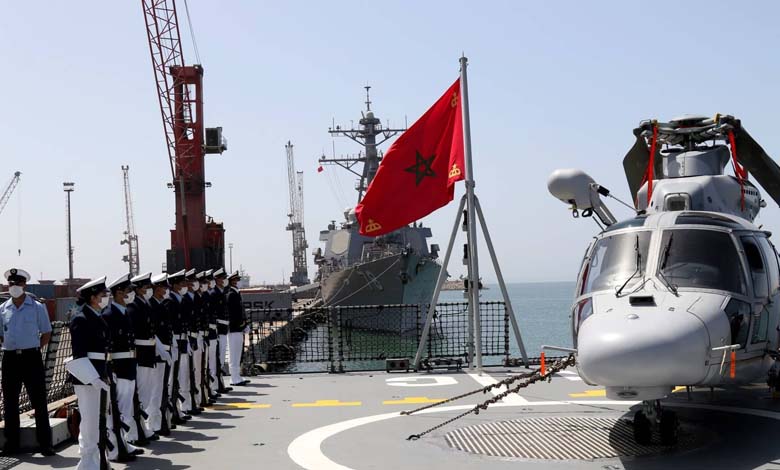Legality of Moroccan Military Maneuvers Ends Controversy Raised by the Canary Islands
Paris and the Canaries agree on the importance of maintaining good relations with Morocco for Spain and the Canary Islands

The president of the Canary Islands, Fernando Clavijo, put an end to the controversy over the military maneuvers conducted by Morocco in the Atlantic Ocean, affirming that they were “completely legal.” This recognizes Rabat’s rights in the waters of its southern provinces and refutes contrary or skeptical claims about these rights.
Morocco began one week ago one of the largest maritime military maneuvers, off the Atlantic coasts between the Moroccan Sahara and the Canary Islands, with the aim of enabling the Moroccan Royal Navy to train for military protection of the coasts against various threats, primarily related to organized crime, international drug trafficking, and combating illegal migration, while preparing to face security threats that the southern coasts of the Kingdom may encounter.
Clavijo explained that the meeting he held Tuesday with the Foreign Minister, José Manuel Albares, contributed specifically to improving communication and coordination channels between the two governments, emphasizing that these maneuvers took place in Moroccan waters away from the Canary Islands, so they are “completely legal” and were notified to the Ministry of Foreign Affairs through the usual channel, just as Spain does when conducting its own maneuvers.
The maneuvers carried out by Morocco “one-sidedly” angered the executive of the Canary Islands against Spanish Prime Minister Pedro Sánchez, who had been asked since last February to disclose the details of his talks with the Moroccan side.
For its part, the central Spanish government defended the naval maneuvers launched by Morocco, as they take place in “well-defined areas” and “very far from Spanish waters.”
The central Spanish government, through Albares, attempted to dispel the fears of the officials of the Canary Islands, including far-right parties that sought to exploit the maritime military maneuvers launched by Morocco in the waters of its southern provinces for political purposes, by sowing fear and denigrating the purpose of these maneuvers.
According to the Spanish Ministry of Foreign Affairs, Albares and Clavijo agreed on the importance of currently preserving good relations with Morocco, for Spain and the Canary Islands, while the Spanish foreign minister reaffirmed his “permanent readiness” to address any issue related to the Canary Islands issue.
Regarding the environmental challenges that have become a source of hesitation for the Canary Islands, experts say that while these maneuvers seek to extend Morocco’s influence and address all challenges, the Kingdom always recalls environmental and other issues within the framework of its international commitments, where there is a legal framework, and Morocco took its time before starting these military exercises, the largest in decades.
The Spanish security and military expert at the Defense Research Center, Gabriel Cortina, conducted an analysis and evaluation of the operation carried out by the Royal Navy along the southern coasts, indicating that Article 30, in matters of international relations, states that “a sovereign state can conduct the maneuvers it wants, when it wants,” so “it is not subject to any authorization,” which means that Morocco is not obliged to request permission to conduct maritime military maneuvers in its territorial waters, which is contrary to the hostile statements made by the “People” in the Spanish Senate.
Cortina affirmed that Rabat “can carry out the military maneuvers it deems appropriate” in the waters it has sovereignty over, and this refers to the territorial waters of the Moroccan Sahara. According to the Spanish expert, this situation is also linked to a change in Spain’s position on the Sahara issue and the recognition by the former colonial power of Rabat’s sovereignty over its southern provinces, which means that Morocco can conduct the maneuvers it wants in those waters with complete ease.
The newspaper “El Confidencial” revealed some characteristics of these maneuvers, based on documents issued by the maritime fishing delegations belonging to the Moroccan Ministry of Agriculture in cities like Laayoune or Dakhla, indicating that the Moroccan Royal Navy will conduct maritime maneuvers in the south of the country and in the waters of the Moroccan Sahara, from March 29 to June 28, daily from 7 am to 8 pm, stating that “the Moroccan Royal Navy has six frigates and twenty patrol boats, and is one of the best fleets in Africa.”












